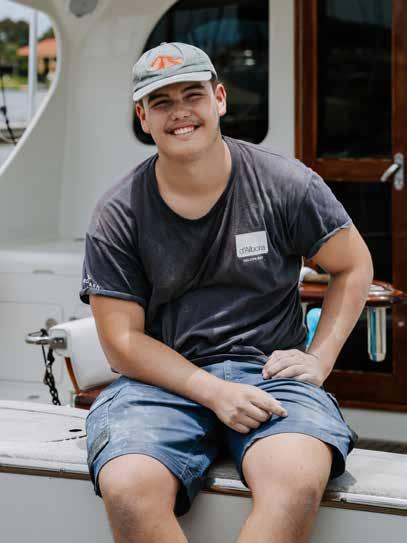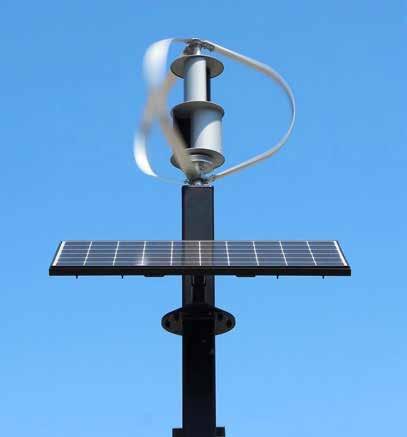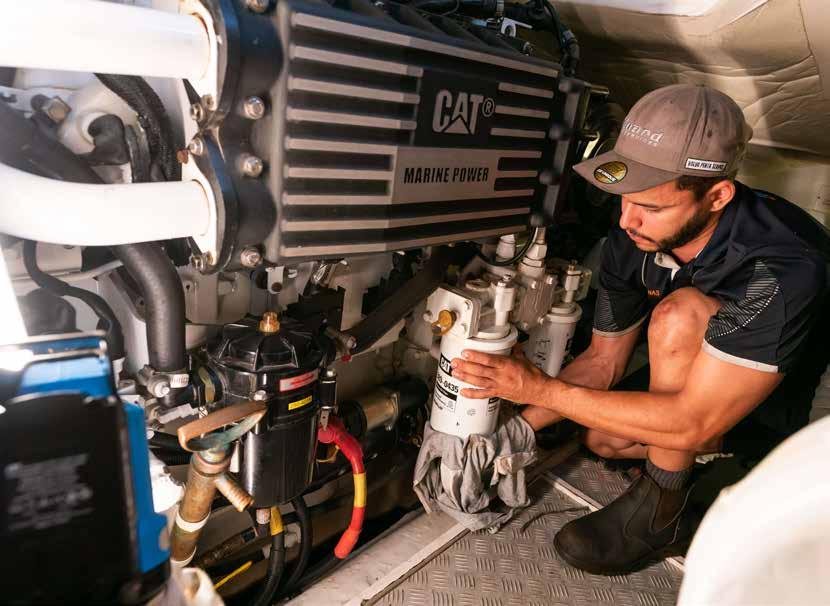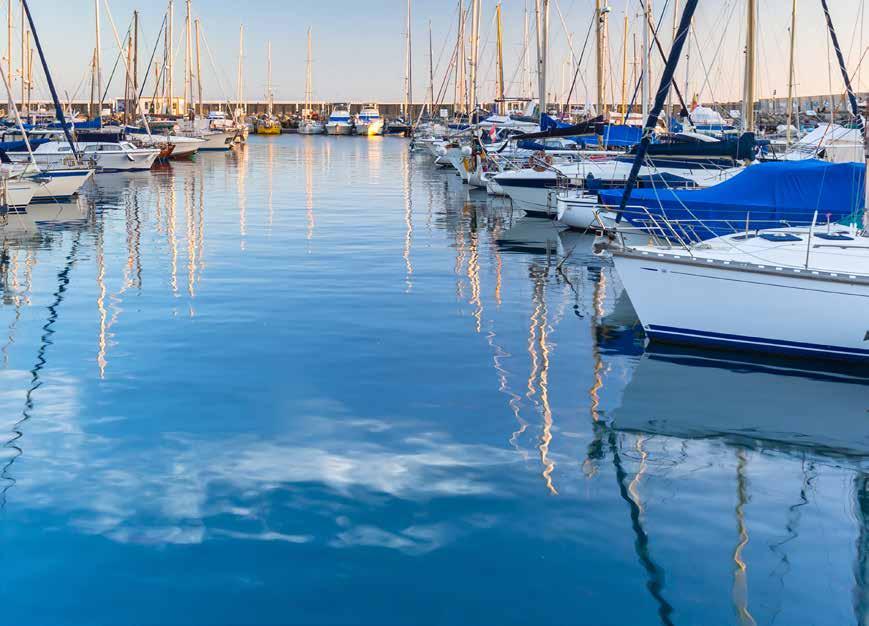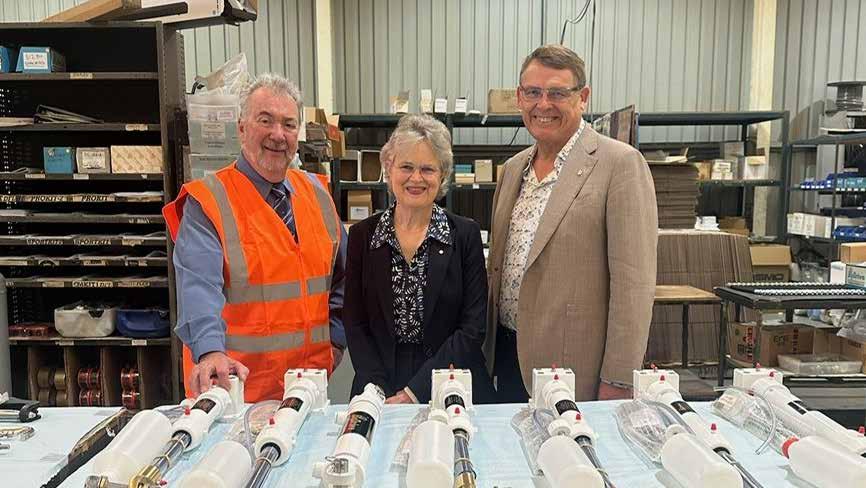
6 minute read
BEYOND THE BLUE MIND: WELLNESS AS A MARKETING OPPORTUNITY
by Tim Stackpool
The gentle lapping of waves against a hull, the vast expanse of blue stretching to the horizon, the rhythmic motion of a vessel cutting through water – for generations, Australians have instinctively understood that time on the water feels restorative.
Now, mounting scientific evidence is validating what boaters have long known: being in, on, under or by water delivers profound mental and physical health benefits. This emerging field, known as “Blue Mind,” presents the Australian recreational marine industry with an unprecedented opportunity to reposition boating from a luxury pastime to an essential wellness investment.
The Science Behind Blue Mind
The concept of Blue Mind, popularised by the late marine biologist Dr Wallace J. Nichols in his groundbreaking book of the same name, describes the meditative state triggered by water. As Louise Dawson from BeHeartSmart explains, “Nichols’ Blue Mind research validates what many feel instinctively: water reduces stress and promotes happiness. It shows that immersion in water lowers cortisol, improves focus, and boosts wellbeing.”
Dr Nichols identified three distinct mental states: Red Mind (characterised by stress, anxiety and fear), Grey Mind (mental fog and fatigue), and Blue Mind: a peaceful, meditative state associated with water environments. This research is now supported by a growing body of wellness experts who recognise boating’s therapeutic potential.
Gregg Braden, five-time bestselling author and ambassador to the HeartMath Institute, studies “living from the heart” through heart coherence research. The study indicates that when the heart, brain, and emotions are in sync, just a few minutes of focused breathing can reduce blood pressure and improve mental clarity. “On water, people often naturally drop into that coherent state,” Louise Dawson notes, explaining how boating becomes a practical way to access that position.
Dr Tara Swart, neuroscientist and author of “The Source,” describes the heart as a vital bridge between intuition, emotion, and cognition. Her research on the “intention point” (where heart and mind align) shows how water environments naturally foster this integration, creating both emotional and biological transformation. The physiological benefits are apparently measurable. “Being near water lowers stress hormones like cortisol, while encouraging parasympathetic nervous system activity – our body’s ‘rest and restore’ mode,” explains Louise Dawson. “People often describe feeling ‘reset’ after a day boating, as if life’s noise has quieted.”
Consumer Wellness Trends Driving Change
Australia’s wellness industry has experienced renaissance growth, with consumers increasingly prioritising mental and physical health, and experiential purchases over material goods. The Australian Institute of Health and Welfare reports that 43 per cent of Australians experience a poor mental health condition in their lifetime, with the pandemic accelerating demand for wellness solutions.
This shift in consumer consciousness creates grounds for marine businesses willing to evolve their marketing approach. Rather than focusing solely on horsepower, hull design, or fishing capabilities, operators should now also emphasise the therapeutic value of time on water. As Louise Dawson observes, “Boating fits perfectly into this cultural shift. It’s outdoors, active, restorative and socially engaging. Many now see boating as more than leisure. It’s a tool for mental health, resilience and recovery.”
The wellness positioning particularly resonates in the postpandemic landscape. “This reframing creates an enormous opportunity for marine businesses to position themselves as part of the wellbeing economy,” notes Louise Dawson. Unlike traditional wellness interventions that can feel like another task, “boating integrates joy, movement and connection, making it sustainable and enjoyable.”
Demographics also support this wellness positioning. Millennials and Gen X (now entering peak earning years) demonstrate higher wellness spending than previous generations. They’re willing to invest in experiences that deliver mental health benefits, making them ideal targets for recreational boating businesses that can articulate the wellness value proposition effectively.
Marketing the Wellness of Boating
Some progressive marine businesses worldwide are already pivoting their messaging from product-centric to experience-focused storytelling. Instead of only leading with technical specifications, they’re also highlighting transformational outcomes: stress reduction, family bonding, digital detox and mental restoration.
One successful approach involves partnering with wellness professionals to create content that legitimises the health benefits of boating. Internationally, some marina operators are hosting mindfulness instructors for sunset relaxation cruises, while charter companies collaborate with therapists to offer structured wellness retreats on water.
Social media campaigns increasingly feature testimonials from customers describing how boating improved their mental health, strengthened relationships, or provided respite from anxiety. This user-generated ‘influencer’ content can prove more persuasive than traditional advertising, likely because it focuses on outcomes rather than features.
Photography and videography continue to emphasise the wellness experience. Marketing materials have always showcased peaceful moments, such as families sharing quiet conversations at anchor, or children experiencing wonder while exploring marine environments. Now these images also include beautiful sunsets with individuals practicing relaxation on deck, selling the emotional transformation rather than the purely vessel itself.
Product and Service Innovation
The wellness trend is now a tangible innovation across the recreational boating sector. Electric and hybrid vessels are gaining interest not just for environmental reasons, but because their quiet operation can enhance mental health by just being on water.
Companies like Silent Yachts and Greenline Yachts appear to have built entire brands around this serene boating experience.
For charter operators, opportunities exist which are developing wellness-specific packages combining boating with nature-based therapy programs. Some Australian ‘alternative’ tour operators have offered “digital detox” charters where customers surrender devices to fully engage with the blue environment.
Marina design can also evolve to support wellness experiences. Think about adapting an existing space to incorporate a meditation or quiet space. Partnering with local wellness practitioners to offer services like massage therapy or mindfulness classes specifically for boaters might also be worthy.
All of this should be considered because the physiological mechanisms behind these benefits are well-documented. “The rhythm of waves, the sound of water, and the gentle rocking of a boat all provide repetitive sensory input,” explains Louise Dawson. “This repetition calms the nervous system, shifting it from ‘fight or flight’ into ‘rest and restore’ mode. People often describe this as feeling ‘settled,’ more present, and less scattered. It’s very similar to mindfulness practices.”
Opportunities for Events and Experiences
Traditional marine industry events, such as boat shows, Try Sailing or Boating Days, and owner gatherings, also represent opportunities for wellness integration. Additional features might include presentations from mental health professionals discussing the therapeutic benefits of boating. These marketing initiatives can reach otherwise unconsidered sectors of the market.
For marine businesses seeking to incorporate genuine wellness elements, Louise Dawson suggests: “Integrate wellness consciously. This could mean promoting mindful sailing programs, offering ‘digital detox’ charters, or ensuring staff are trained in both safety and mental health first aid. Market boating not just as fun, but as a way to recharge and invest in your health.”
The key is making wellness integration feel authentic rather than opportunistic. Successful programs genuinely prioritise participant wellbeing while naturally showcasing how boating supports mental health objectives.
Industry Implications and Broader Reach
Most significantly though, using “wellness positioning” opens recreational boating businesses to entirely new customer segments. Traditional boating demographics skew older and male, but wellness appeals across age groups and genders. Urban professionals seeking stress relief, families prioritising screen-free time, and individuals managing anxiety or depression represent substantial untapped markets.
The community benefits extend beyond individual wellness. “Just as importantly, boating nurtures connection,” observes Louise Dawson. “Whether it’s families on the water together, friends on a sailing trip, or strangers meeting in a marina, shared water experiences create stronger social bonds. In an age of rising loneliness, this is not a small thing.”
BeHeartSmart is already working with marine businesses to create what Louise Dawson calls “a BeHeartSmart movement” which helps people understand the connection between heart and mind while strengthening their inner world. “We are all about giving people heart tools – how to protect their hearts and how to dynamically respond when something goes wrong,” she explains.
This broader appeal also supports industry sustainability goals. Rather than competing for a shrinking pool of traditional boating enthusiasts, businesses can expand the total market by attracting wellness-conscious consumers who might never have considered boating previously.
Healthcare providers increasingly appear to recommend naturebased interventions for mental health conditions. Marine businesses that can articulate their wellness benefits may find opportunities for partnerships with medical professionals, corporate wellness programs, or maybe event insurance providers seeking preventative mental health solutions.
The regulatory environment also supports this evolution. Government initiatives promoting mental health awareness and outdoor recreation create a favourable context for wellness-focused marine businesses.
Charting the Course Forward
The convergence of scientific validation, consumer demand and industry innovation creates a new opportunity for Australian marine businesses. Those willing to embrace wellness positioning can differentiate themselves in increasingly competitive markets while contributing to broader public health objectives.
“People who regularly spend time on water often show lower stress, better sleep and improved mood,” notes Louise Dawson. “Physiologically, you see lowered heart rate and blood pressure; psychologically, improved mood, better sleep and reduced anxiety. Many people describe feeling recharged after a day boating, like they’ve shed layers of stress.”
Success requires authentic commitment to customer wellbeing rather than superficial marketing adjustments. Marine businesses can support community mental health initiatives while expanding their value proposition, selling not just boats or trips, but restored minds, healthier hearts, and stronger communities.
The recreational boating industry has always sold an aspiration of freedom, adventure and escape. Now science provides the means to articulate why those dreams matter for human wellbeing. By embracing Blue Mind principles, BIA members can position themselves not just as sellers of recreational products, but as partners in their customers’ mental health and life satisfaction.
The tide is turning toward wellness-conscious consumption. Businesses that recognise and respond to this shift will find themselves well positioned to ride the wave of growing demand for experiences that genuinely improve quality of life. In the process, more Australians will discover what boaters have always known: that time on the water isn’t just enjoyable, it’s essential.


